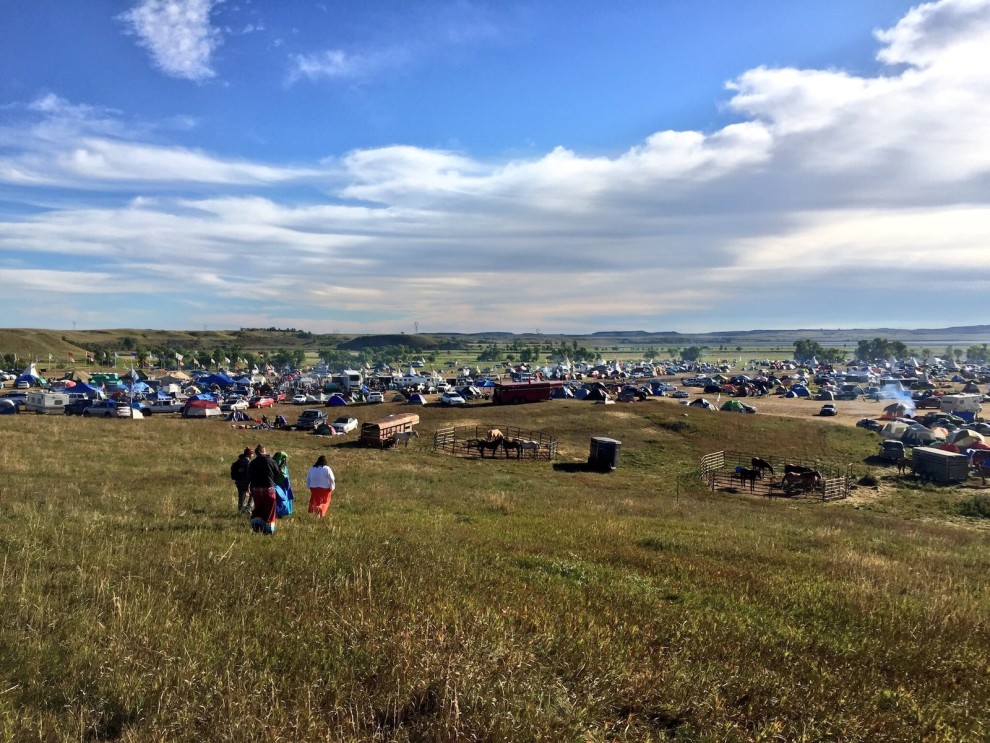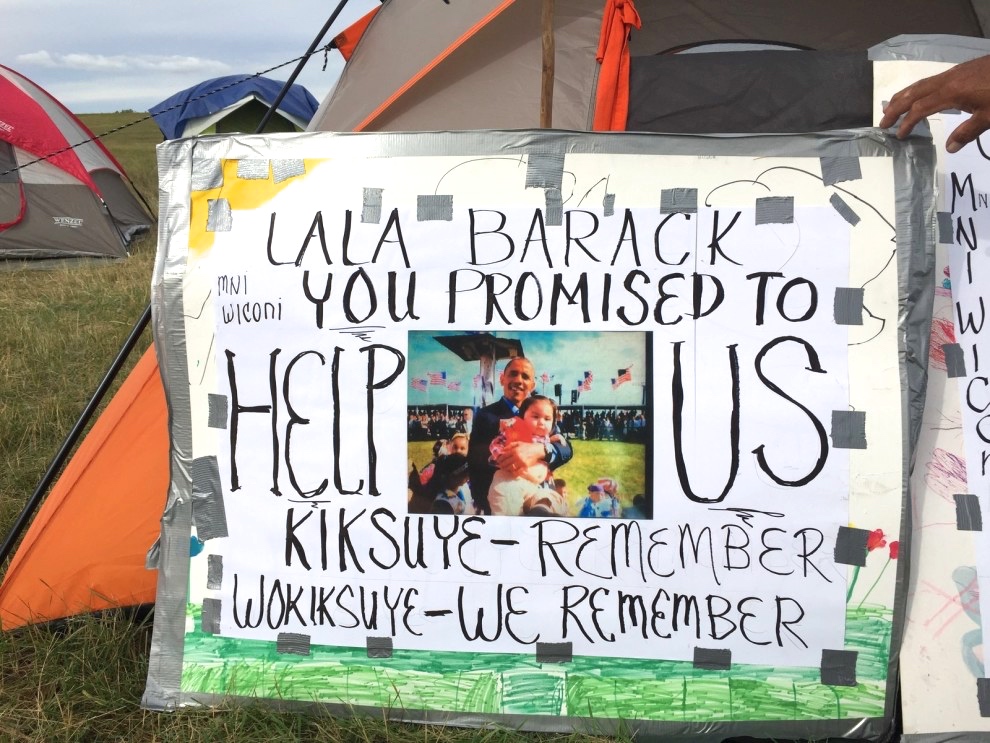CANNON BALL, North Dakota – The mood at the Standing Rock Sioux Tribe reservation on Friday afternoon went from somber to joyous as a press release was read from the Department of Justice announcing a halt to the Dakota Access Pipeline construction.
A federal court ruled against the Standing Rock Sioux Tribe but, in a remarkable move, three federal agencies agreed to block the fossil fuel pipeline construction upstream from the Standing Rock Sioux Tribe reservation pending a reconsideration process.
The Department of Justice, Department of the Army and Department of Interior issued the statement the same week that President Barack Obama was confronted by an attendee at a town hall event in Laos about the Dakota Access Pipeline saga – and revealed that he had no knowledge of it.
Hundreds of tribal members from across the U.S. circled shoulder to shoulder around a small ceremonial fire as the statement was read by a Standing Rock Sioux Tribal member. The news came almost oine week after a private pipeline security firm released attack dogs and pepper spray on the tribe's people and supporters who gathered on Sept. 5 to protect their waterways and culturally sensitive tribal burial grounds in the path of the projected pipeline.
It is estimated that 7.4 billions barrels of undiscovered oil is held in the Bakken formation beneath parts of Canada, Montana and North Dakota. The $3.8 billion pipeline could carry nearly 500,000 barrels of crude oil per day. The 1,172-mile-long pipeline is scheduled to run below the Missouri River less than a mile north of the Standing Rock reservation – and if a break were to occur, it would threaten the water quality for tens of millions of Americans who live downstream.
The Missouri River connects to the Mississippi River and both are important for drinking water, agriculture, transportation and habitat for countless wild plant and animal specie along their routes. To the tribes people of this region and many others, these waterways hold powerful spiritual and cultural value as well, in addition to a long list of other reasons to make sure that oil never pollutes these waters.
Several people present at the tribal announcement on Friday expressed both a sense of relief and renewed determination to keep working towards completely preventing its construction. Due to a long history of repeated trampling of U.S. treaties with sovereign tribal communities like this one, Native Americans say they have good reason to continue direct action against the Dakota Access while also applying pressure to local and federal agencies.
There have been at least 18 major U.S. fuel pipeline spills in 2016 alone – causing widespread concern about this latest project, with many on the ground in North Dakota considering it a matter of "when," not "if," the pipeline will leak.
Seeing the tractor trailer-sized piles of donations, the growing throngs of international press and the hundreds of supporters arriving daily at the Sacred Stone north camp has given many people hope that the law will side with the people eventually. Like the Keystone XL pipeline, this project could buckle under a similar landslide of action and support in months to come.
The tribe and the Army Corps of Engineers are scheduled to be in court on September 16 for a "status conference."
Aaron Murphy produces media and lives at Dancing Rabbit Ecovillage in northeastern Missouri, downstream from the Dakota Access Pipeline.
3 WAYS TO SHOW YOUR SUPPORT
- Log in to post comments














Comments
Aaron Murphy replied on
re: TEMPORARY hold on pipeline at Standing Rock Pipeline
The fight against Energy Transfer Partners who is building the pipeline is NOT over! The DOJ announcement is only a temporary and voluntary pause in construction. People will continue arriving at Standing Rock Sioux encampment until the pipeline is completely shut down. With the failed Keystone pipeline as a model, the Dakota Access Pipeline can also be terminated with continued support. http://sacredstonecamp.org/